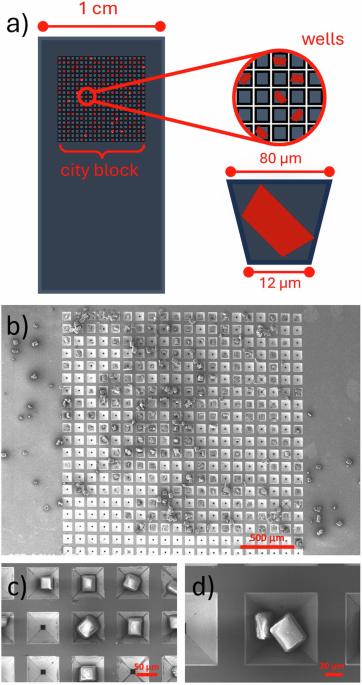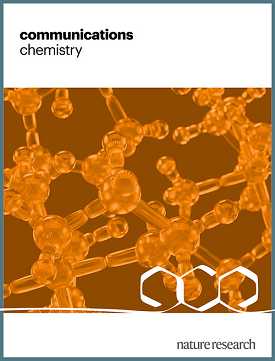Small-rotative fixed-target serial synchrotron crystallography (SR-FT-SSX) for molecular crystals
IF 5.9
2区 化学
Q1 CHEMISTRY, MULTIDISCIPLINARY
引用次数: 0
Abstract
The increasing availability of ultrabright Light Sources is facilitating the study of smaller crystals at faster timescales but with an increased risk of severe X-ray damage, leading to developments in multi-crystal methods such as serial crystallography (SX). SX studies on crystals with small unit cells are challenging as very few reflections are recorded in a single data image, making it difficult to determine the orientation matrix for each crystal and thus preventing the combination of the data from all crystals for structure solution. We herein present a Small-Rotative Fixed-Target Serial Synchrotron Crystallography (SR-FT-SSX) methodology, in which rotation of the serial target through a small diffraction angle $$(\varphi )$$ at each crystal delivers high-quality data, facilitating ab initio unit cell determination and atomic-scale structure solution. The method is benchmarked using microcrystals of the small-molecule photoswitch sodium nitroprusside dihydrate, obtaining complete data to dmin = 0.6 Å by combining just 66 partial datasets selected against rigorous quality criteria. Multi-crystal methods such as serial crystallography can provide a complete 3D structure of the target material before radiation damage becomes significant, but the methods are challenging for small molecule crystals with small unit cells, where very few reflections are recorded in a single data image. Here, the authors present a small-rotative fixed-target serial synchrotron crystallography (SR-FT-SSX) methodology, in which rotation of the serial target through a small diffraction angle $$(\varphi )$$ at each crystal delivers high-quality data, facilitating ab initio unit cell determination and atomic-scale structure solution.

用于分子晶体的小旋转固定目标串行同步辐射晶体学(SR-FT-SSX)。
超亮光源的日益普及有助于以更快的时间尺度研究更小的晶体,但同时也增加了严重 X 射线损伤的风险,这导致了多晶体方法的发展,如序列晶体学(SX)。对具有小单元晶胞的晶体进行 SX 研究具有挑战性,因为单个数据图像中记录的反射很少,难以确定每个晶体的取向矩阵,因此无法将所有晶体的数据结合起来进行结构求解。我们在此提出了一种小旋转固定目标串行同步辐射晶体学(SR-FT-SSX)方法,即在每个晶体上通过一个小衍射角(φ)旋转串行目标,从而获得高质量的数据,促进原子单胞的确定和原子尺度的结构求解。该方法以小分子光开关硝普钠二水合物的微晶为基准,通过合并根据严格质量标准选出的 66 个部分数据集,获得了 dmin = 0.6 Å 的完整数据。
本文章由计算机程序翻译,如有差异,请以英文原文为准。
求助全文
约1分钟内获得全文
求助全文
来源期刊

Communications Chemistry
Chemistry-General Chemistry
CiteScore
7.70
自引率
1.70%
发文量
146
审稿时长
13 weeks
期刊介绍:
Communications Chemistry is an open access journal from Nature Research publishing high-quality research, reviews and commentary in all areas of the chemical sciences. Research papers published by the journal represent significant advances bringing new chemical insight to a specialized area of research. We also aim to provide a community forum for issues of importance to all chemists, regardless of sub-discipline.
 求助内容:
求助内容: 应助结果提醒方式:
应助结果提醒方式:


